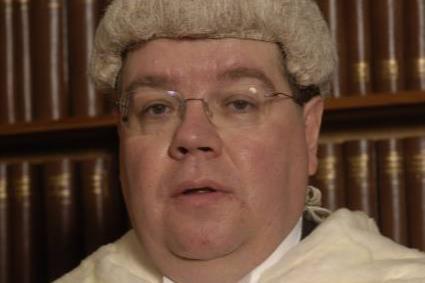A judge was correct to jail an environmental protester for 112 days for deliberate contempt of court, the Court of Appeal has said in a ruling citing recent authorities including that of barrister Tim Crosland and the Insulate Britain campaigners jailed last year. However in Breen & Ors v Esso Petroleum Company Ltd, three judges led by Lord Justice Coulson found that a £1,500 fine was inappropriately imposed.
The appeal judges also criticised the sentencing judge’s approach to explaining how the 112-day term was calculated.
The case arose from what Coulson described as a 'long history of disruption' of the scheme to replace the Southampton-to-London oil pipeline, classed as a nationally significant infrastructure project. In July this year, protesters dug a pit in land owned by Runnymede Borough Council in an attempt to disrupt the work. An injunction against the protester known as 'Digger Down' was obtained in August.
According to the judgment, the protester refused to comply with the terms and ignored a committal application served on him later in the month. When police returned to arrest him he had fled the site. However he appeared in court, represented by counsel, before The Honorable Mr Justice Ritchie, who imposed immediate custody and a fine of £1,500 for 'particularly serious' breaches of the court order.

The appeal judges heard that the prison sentence had been wrong in principle, unreasonable and that there was no justification for a fine.
Dismissing the first two grounds, Coulson rejected the claim that the custodial sentence was based on an 'artificial tariff'. But while the sentencing judge had 'a commendable desire to explain to the appellant how he had arrived at the custodial term', Coulson said 'there are all sorts of dangers and difficulties in adopting the methodology... It is too granular.' However what mattered, he said, is the result: the term of 112 days 'is unassailable'.
The appeal judges also backed the decision not to suspend the sentence.
However on the appeal over the fine, Coulson referred to the Supreme Court's ruling in Crosland. 'If a fine is sufficient penalty then custody is not an option. In the present case, by contrast, it is agreed that the custody threshold was passed, so a fine could never have been a sufficient penalty.
'In those circumstances, there was no principled basis for imposing a fine in addition to the term of imprisonment.'
He also noted that enforcement of a fine would have to follow the procedure set out in the Contempt of Court Act, involving His Majesty’s Remembrancer proceeding to enforce payments. 'Whilst there may be some cases in which that process is appropriate, I doubt whether it could ever be applicable to an impecunious protester such as the appellant.' The fine order was quashed.
Annabel Timan, instructed by ITN Solicitors, appeared for the appellant; Timothy Morshead KC, instructed by Eversheds Sutherland International LLP, for the respondent.
This article is now closed for comment.



























5 Readers' comments